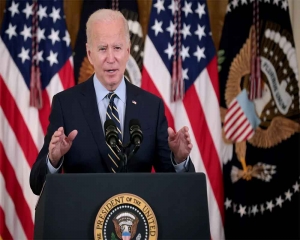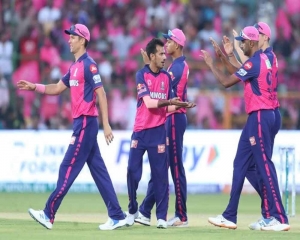Civil servants, both principled and spineless, exist in the system; the former serve the country and the latter politicians and themselves
In the administrative system, the bureaucracy plays a key role as civil servants or babus function to implement the policies of the elected Government in a rational, efficient and non-partisan manner. However, people have often experienced that when it comes to implementation and delivery, the performance is disappointing, leading to almost non-delivery or poor public services. And, one of the many factors attributed to this is the unholy nexus between politicians, bureaucrats and other vested interests. There are compelling reasons to believe that this is true. And, it is little wonder, the cost is stupefying. While many feel that the bureaucracy saps initiative, inhibits risk-taking and crushes creativity; there are others who feel that in a vast and diverse country like ours the bureaucracy is unavoidable. And, there is yet another group of people who feel colonial hangovers in bureaucracy represent an utterly frustrated scenario as it can’t meet the social and economic challenges that a welfare State like India faces.
It seems worthwhile, however, to quote Queen Elizabeth-I. After making Lord William Cecil her secretary, Elizabeth advised him, “This judgement I have of you, that you will not be corrupted by any manner of gift and that you will be faithful to the state and that, without respect of my private will, you would give me that counsel which you think best.” Even though policies, projects and programmes drawn up by the Government aim at the development of the country and well-being of the people, successive governments failed to appreciate the fact that leadership may change, but the engine of governance does not falter on account of having a new driver in a Government that possesses a relatively-famed bureaucracy. However, in demanding political systems, there is less pretence that the country’s bureaucracies are deeply influenced by people’s interests. Civil servants, both principled and spineless, exist in the system; the former serve the country and the latter politicians and themselves. Thus a section of bureaucracy appears to act as a cog in a political machine that seeks loyalty to the regime as a means to maintain its hold on power, identify solely with the rulers and the official ideology.
Incidentally, there are not many Ashok Khemkas (the IAS officer transferred over 50 times in 27 years of service and still counting) who have the guts to stand up against hidden agenda, poor policies, corruption and exploitation to remain aligned with democratic ideals. Put differently, there are civil servants wishing to sail with confidence, competence, courage and commitment but are being hounded for doing their duty. Let’s not lose sight of the Punjab and Haryana High Court’s recent observation about Khemka who secured a grading of 9.92/10 by the Reviewing Authority: “We are of the view that a person of such professional integrity needs to be protected as the professional integrity in our political, social and administrative system is depleting very fast....” That being said, I am reminded of a statement by a retired upright IAS officer and writer and columnist whom I met at India International Centre (IIC). As I congratulated him for writing a bold article against a powerful Central Minister, he laughed in that very contagious way he had. I also gave him unsolicited advice that if he continued writing such pieces, he could not aspire to become a Governor or head a Government-appointed committee or organisation. And in response, he said, “I am not among those crafty bureaucrats who enjoy the trust of unscrupulous politicians and ministers. I was sidelined, transferred for not being politically convenient and pliable. But I never gave in to temptation.”
However that may be, just a few days ago, speaking at a panel discussion on ‘Has the steel frame rusted’, former Chief Secretary of Delhi Government, Shailaja Chandra said, “It is easy to say that politicians have failed the IAS officers. But I feel this is not entirely correct. Those in the service need to introspect. If they do not have any extraneous interests, nothing can stop them from serving the people.”
So far, the feeble accountability of public and political processes, have defined the character of public administration in India. The challenge ahead lies in finding and meeting the balance between serving citizens while upholding the rule of law without falling prey to either obstructionist and lacklustre bureaucracy or clientelism.
Nevertheless, even as we complain about red tape, paperwork and excessive bureaucratic rigmarole the fact remains that eventually people rely on it to structure our country. The NDA Government in its second term, infused churnings in the Indian civil services by pushing for the lateral entry of domain experts and forced retirements of officers, but it continues to face enormous social and political challenges. In order to effectively deal with these trials we need an efficient bureaucracy. And, to find that, the Central Government has to think and act big.
Righting the country’s administrative machinery steadfastly is the only way it’s going to happen. Indian ethos and the laws of the land mandate an efficient bureaucracy. It is now up to lawmakers, the Ministers — whom the bureaucracy is supposed to report to — to ensure the country gets it. It’s time for transition from a patronage-based to merit-based bureaucracy, with which will come accelerated progress.
(The writer is former DGM, IIC, New Delhi and GM, International Centre Goa)

























